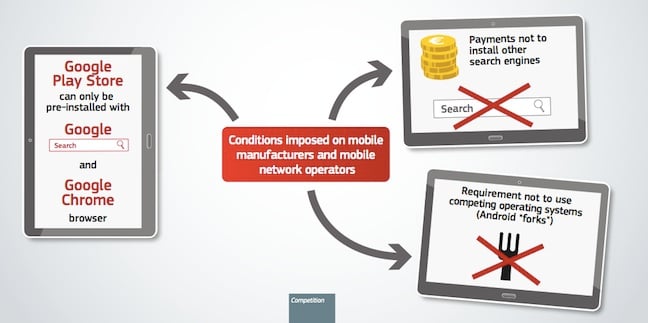This article is more than 1 year old
Google loses Android friends with Pixel exclusivity
Maybe it doesn't need friends? But it should worry about fragmenting Android further
Google’s decision to keep premium Android features for itself attracted surprisingly little comment last year - but the dangers are heaving into view. By declaring war on its most important customers, Google risks losing a degree of control over Android, further fragmenting the platform.
Platform providers like Google have always shied away from the taboo of competing with their own licensees. But it’s no longer such a taboo. Microsoft entered the premium devices business with what became a successful niche product, the Surface Pro, and grumbling PC OEMs were obliged to raise their game. Phone OEMs were never happy with Google making Google-brand Nexus phones in 2010. As one Google OEM told us back then when the first Nexus was launched: "They don’t know what hurt they’re doing, and they don’t care."
But the Nexus turned out not to be the “superphone” that the hype led us to believe it would be. Google restricted distribution of Nexus phones, regarded them as a series of experiments, and mollified the OEMs by choosing a different one each year for the Nexus beauty contest.
'Superphone' to vie against iPhone, Samsung
However, the Pixel is a very different beast to Nexus, which was really a hobby for Google. Google is serious, and really wants you to think of Pixel as a “superphone”. It has a price to match the iPhone, and it launched globally, with a staggering figure marketing budget. It’s directly competing with Samsung.
And it’s this exclusivity aspect of Pixel that most alarmed OEMs - even Microsoft didn’t dare try holding back Windows goodies that only Microsoft Surface devices could run. Google introduced a new virtual assistant that no other Android OEM could obtain: giving Google an exclusivity period of a few months. Other OEMs would have to get by with Google Now.
Now Google is looking for partners for its midranger, it’s finding friends harder to come by. Via The Information, we learn that for its own devices, Huawei has opted to go with Amazon’s Alexa assistant rather than wait for Google’s Assistant to become part of the Android platform.
Who can blame them? As Charles Arthur points out:
“Maybe Google shouldn’t be surprised that Android handset-makers are looking to Amazon when Google keeps the best new features exclusive to its own Pixel phones. But what do I know?”
Android’s fragmentation problem stems from Google’s inability to bring new features to the installed base. New platform features arrive via new phones - hardly anyone upgrades Android from one major version to the next using OTA updates. This poses a mortal threat to Google, which is an advertising services business with a phone platform attached. The only reason Google spends billions of dollars a year subsidising Android is to keep those advertising services up to date.
Edison Research analyst Richard Windsor believes Pixel is just a first stepon a path that will see Google seize total control of the nominally “free and open” Android - possibly even moving to the entire OS into the proprietary GMS (Google Mobile Services) binary layer.

Source: European Commission
But this is even riskier. We do wonder, with Google’s contractual relations with its OEMs under unprecedented scrutiny, whether feature exclusivity was such as wise move. But perhaps Google cares as much about antitrust as much as it cares about Android OEMs? ®
